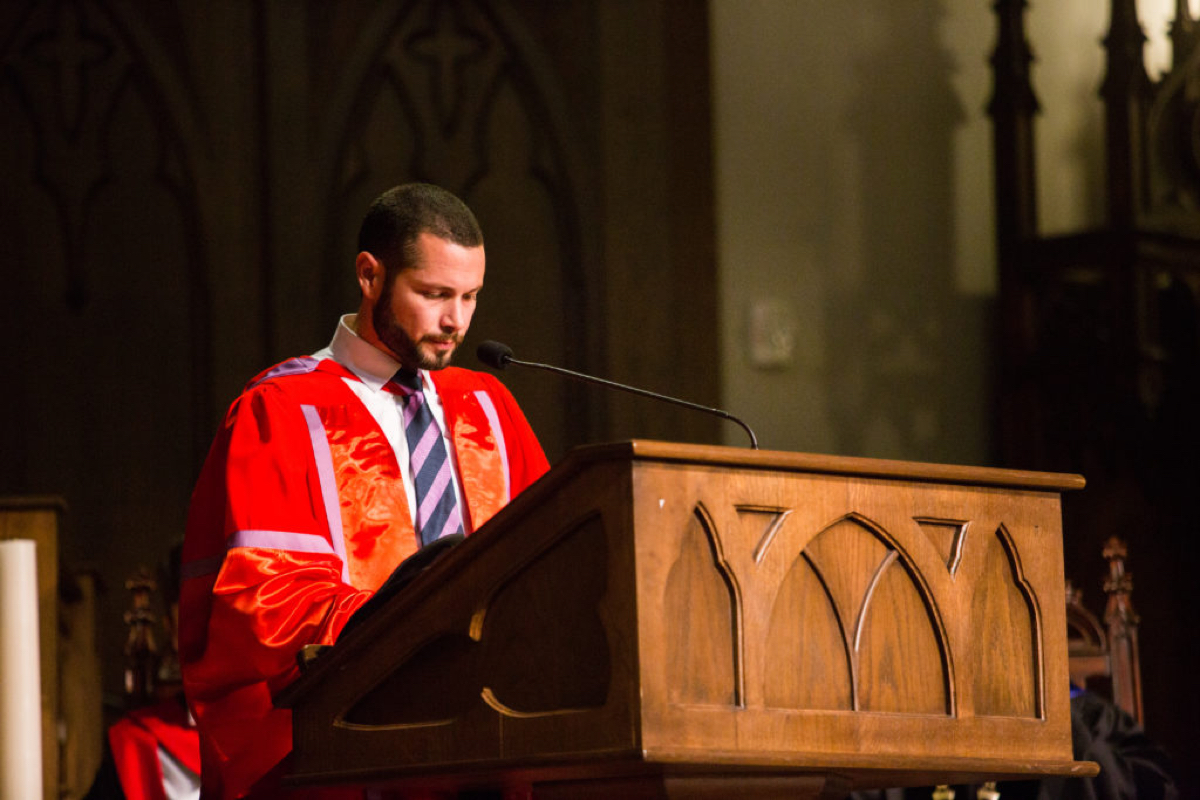O Holy Night: A Favorite Christmas Hymn
Posted On December 08, 2017

O holy night!
The stars are brightly shining
It is the night of the dear Savior’s birth!
Long lay the world in sin and error pining
Till he appear’d and the soul felt its worth.
A thrill of hope the weary soul rejoices
For yonder breaks a new and glorious morn!
Fall on your knees
Oh hear the angel voices
Oh night divine
Oh night when Christ was born
Oh night divine
Oh night divine
Led by the light of Faith serenely beaming
With glowing hearts by His cradle we stand
So led by light of a star sweetly gleaming
Here come the wise men from Orient land
The King of Kings lay thus in lowly manger
In all our trials born to be our friend
Truly He taught us to love one another
His law is love and His gospel is peace
Chains shall He break for the slave is our brother
And in His name all oppression shall cease
Sweet hymns of joy in grateful chorus raise we,
Let all within us praise His holy name
I’ll never forget that make-it-or-break-it moment in my marriage. “Dave,” asks my wife with a serious look on her face. My stomach drops. My heart pounds, as I turn to see a wide-eyed, solemn stare. “What is it, Mindy?” She looks down as if to figure out how to craft feelings into words, nervously wringing her hands and shifting her feet. “Well, I need to know if…” The tone in her voice is now surprisingly firmer, such that a wrong response will inevitably result in a rocky relationship (husbands are very familiar with such tones). “I need to know…,” she continues, pausing for rhetorical effect. “I need to know if I can start playing Christmas music on the first of October?” My response was a speechless, blank stare. After a few seconds, I started laughing hysterically.
Growing up, my wife assumed it was wrong to begin playing Christmas music prior to the day after Thanksgiving. But she found much Christian liberty in marriage. And over the course of thirteen years together, I have been exposed to twice (if not three times) as much Christmas cheer than the average husband. And out of all the Christmas songs one can hear on Pandora, I would have to say that “O Holy Night” is one of my favorites. Here are five reasons why:
- It focuses on the incarnation. It is “the night of the dear Savior’s birth!” The eternal Son became the incarnate Son, the God-man. It is a “holy night,” a “night divine.” The very day in which God became man is unlike any other day or, for that matter, any other act in human history. As the Nicene Creed puts it, “The Lord Jesus Christ . . . for us and for our salvation, came down from heaven, and was incarnate by the Holy Spirit of the virgin Mary, and was made man.” The Son of God became man. Astonishing!
- It shows the deepest human need. The second person of the godhead assumed humanity to deliver us from sin, death, and eternal condemnation. “Long lay the world in sin and error pining.” Our sin—as guilt and enslavement—needed to be dealt with. This happened through the death and resurrection of Christ and our participation in that historical event. Our sin also leads to “error pining.” We don’t speak that way anymore, but “pining” simply means “languishing.” Humanity apart from Christ and in sin languishes in error. We are in need of the gospel—truth that sets us free (John 8:32).
- It emphasizes new creation. A “new and glorious morn” has broken into the old, fallen creation. We, like Zechariah, have witnessed “the tender mercy of our God, whereby the sunrise shall visit us from on high to give light to those who sit in darkness and in the shadow of death, to guide our feet into the way of peace” (Luke 1:78–79). And, one day, “all oppression shall cease.”
- It describes the benefits of becoming a new creation. At Christ’s appearance, the “soul felt its worth.” A “weary soul” feels “a thrill of hope” and “rejoices.” We feel worthy because of who we are in Christ, and we feel joy over what He has done on our behalf.
- Its theology leads to doxological ethics. “Fall on your knees” is the natural response to this “divine night.” “Let all within us praise His holy name.” Divine presence and action naturally generates human praise. But human praise, or doxology, should also produce an ethical response (hence, doxological ethics). It should lead us to obey the command to love God and neighbor. As the hymn declares, Christ “taught us to love one another, His law is love and His gospel is peace.” Also, notice how God liberates the “slave”—one who is enslaved to sin—by liberating him through the gospel, and then, in turn, that slave is now “our brother” in Christ whom we ought to love. Why? Because we were once slaves to sin before receiving the liberating love of God in Christ.
I pray that God continues to lead us from theology to doxological ethics, even in the midst of singing this great hymn, and that we would be those who love theology, love worship, and love one another.
Dr. David Briones is professor of New Testament at Reformation Bible College.